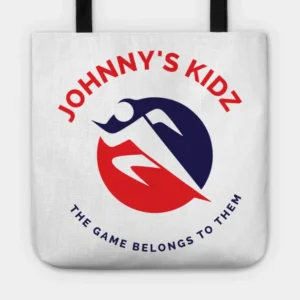Impact of Parental Support on Athletes’ Performance
Exploring the Unique Approaches to Coaching Boys and Girls in Youth Sports
Introduction
Parental support in sports isn’t just a backdrop to an athlete’s journey; it’s a cornerstone.
Picture this: a young athlete, full of potential and dreams, standing on the edge of a playing field.
Behind every stride, every leap, and every goal, there’s often an unseen force propelling them forward—their parents.
This support extends far beyond the sidelines, weaving into the very fabric of an athlete’s development.
From cheering in the stands to offering a comforting shoulder after a tough loss, parental involvement profoundly influences the trajectory of a young athlete’s career.
Importance of Parental Support in General
Parents play an instrumental role in molding the character, resilience, and eventual success of young athletes.
Their influence isn’t confined to a single dimension; it’s a multifaceted form of support that spans emotional, financial, and psychological realms.
Emotionally, parents provide the nurturing environment that fosters confidence and a sense of security.
When a young athlete looks into the stands and sees their parents’ supportive faces, it can bolster their confidence and commitment to their sport.
This emotional backing helps them navigate the highs and lows inherent in sports, teaching them valuable lessons in perseverance and resilience.
Financially, the commitment of parents often makes it possible for young athletes to pursue their passions.
Whether it’s paying for club fees, buying equipment, or traveling for competitions, parental financial support can open doors that might otherwise remain closed.
Psychologically, the role of parents is equally vital.
They help shape a child’s mindset, instilling values such as discipline, hard work, and humility.
They provide a sounding board for frustrations and fears, offering advice and perspective that only years of experience can provide.
But how do you translate that sentiment to a group of tired 10-year-olds after a tough game?
By embodying these values and demonstrating that success is not merely about winning but about growth, effort, and learning from every experience.
Parental support, therefore, is not just beneficial—it’s indispensable.
It’s the steady hand that guides young athletes through the labyrinth of youth sports, helping them emerge not only as better athletes but as well-rounded individuals.
This multifaceted support system is what transforms potential into achievement, making the journey of young athletes a remarkable and enriching experience.
Types of Parental Support
In the journey of youth sports, parental support is the cornerstone of an athlete’s development. It manifests in various forms, each playing a crucial role in shaping the athlete’s experience and growth. Let’s delve into the three primary types of parental support: emotional, financial, and psychological.
Emotional Support
Parents’ emotional support can significantly influence an athlete’s confidence and motivation.
Encouragement and positive reinforcement from parents serve as the bedrock of an athlete’s self-esteem.
When parents celebrate their child’s achievements, no matter how small, it instills a sense of accomplishment and fuels the desire to strive for more.
For instance, a simple “I’m proud of you” after a game can uplift a young athlete’s spirits and reinforce their commitment to the sport.
A stable and supportive home environment is equally vital in helping athletes navigate failures and setbacks.
Sports, by nature, come with highs and lows. The way parents react to these situations can shape their child’s resilience.
When a child returns home after a tough loss, knowing they have a supportive family ready to listen and encourage them helps them process the disappointment and prepare for future challenges.
This unwavering emotional support fosters a mindset that views failures as opportunities for growth rather than as insurmountable obstacles.
Financial Support
Financial assistance is another crucial aspect of parental support, enabling access to quality training, equipment, and competitive opportunities.
The costs associated with sports can be daunting, encompassing coaching fees, travel expenses, and gear.
Financial support ensures that these financial burdens do not become barriers to a child’s athletic aspirations.
For example, parents who can afford specialized coaching or advanced equipment provide their children with the tools they need to excel and compete at higher levels.
Moreover, financial support alleviates the stress of managing expenses related to sports.
This allows young athletes to focus on their training and development without the added pressure of financial constraints.
When parents handle the logistical and financial aspects, children can immerse themselves fully in their athletic endeavors, enhancing their performance and overall experience in the sport.
Psychological Support
The psychological dimension of parental support is pivotal in developing an athlete’s mental toughness and resilience.
Parents play a crucial role in offering mental and psychological guidance, helping young athletes navigate the emotional complexities of competitive sports.
Encouraging a healthy mindset and promoting coping strategies for stress and pressure are essential components of this support.
For instance, parents who teach their children how to manage pre-game anxiety or recover from a poor performance contribute to their mental fortitude.
This guidance helps athletes develop the resilience needed to handle the inevitable pressures of competitive sports.
When parents model and encourage positive self-talk and stress management techniques, they equip their children with the tools to maintain focus and composure under pressure.
Promoting a balanced approach to sports, where emphasis is placed on personal growth and enjoyment rather than solely on winning, also benefits young athletes.
Parents who emphasize the importance of effort, learning, and teamwork over merely the outcome foster a healthier, more sustainable approach to sports.
This mindset not only enhances performance but also ensures that the athlete’s well-being remains a priority.

“Parents need to remember that their primary role is to be a source of unconditional love and support. The greatest gift you can give your child is to let them know that your love is not contingent on their performance.”
– Dr. John O’Sullivan, Sports Psychologist
Case Study 1: The Williams Sisters
When we think about the journey of Venus and Serena Williams, the image of their father, Richard Williams, is indelibly etched into their narrative of success.
Richard’s unwavering support and visionary approach laid the foundation for his daughters’ remarkable careers.
Key Points:
- Vision and Planning: Richard Williams crafted a detailed 78-page plan outlining every step to turn his daughters into champions.
- Learning and Coaching: Despite no formal training, Richard immersed himself in tennis through books and videos, translating his knowledge into hands-on coaching.
- Mental Fortitude Training:
- Richard had Venus and Serena practice while neighborhood kids heckled them, building their psychological resilience.
- This method prepared them for the mental challenges of competitive tennis.
- Statistical Achievements:
- Venus Williams turned professional at 14 and reached number one in the world by 20.
- Serena Williams surpassed her sister’s achievements, holding the number one spot for a record 319 weeks and winning over 30 Grand Slam singles titles.
- Holistic Approach: Richard emphasized education and self-reliance, ensuring a balanced upbringing by pulling them out of junior tournaments to protect their mental health.
Impact:
- Richard’s dedication is evident in the resilience and tenacity of Venus and Serena, transforming women’s tennis and becoming icons of determination and empowerment.
Case Study 2: Tiger Woods
Earl Woods’ mentorship of his son, Tiger Woods, is a classic example of psychological guidance and tailored training creating a sports prodigy.
Earl, a former Green Beret, applied military precision and psychological conditioning to Tiger’s golf training from an early age.
Key Points:
- Early Training: Earl introduced Tiger to golf at six months old, with structured and intense training as he grew.
- Psychological Conditioning:
- Earl created distractions during practice to simulate tournament pressures, fostering Tiger’s unshakeable concentration.
- He emphasized the importance of mental toughness and emotional stability.
- Statistical Achievements:
- Tiger Woods turned professional in 1996 and won his first major, The Masters, in 1997 by a record 12 strokes.
- He has accumulated 15 major championships and 82 PGA Tour wins, tying with Sam Snead for the most in history.
- Character Development: Earl fostered values such as discipline, patience, and humility, emphasizing mental, spiritual, and emotional growth.
Impact:
- Earl’s mentorship shaped Tiger into a golf legend and revolutionized sports psychology integration into coaching.
His innovative methods and belief in Tiger’s potential created a blueprint for nurturing talent that transcends the sport itself.
Benefits of Parental Support
Enhanced Performance and Motivation
One of the most profound influences on a young athlete’s journey is the unwavering support from their parents.
But how does this consistent support translate into enhanced performance and motivation?
Let me paint you a picture. Imagine a young soccer player who, after a tough game, looks up to see their parents cheering them on, win or lose.
This site can be a powerful motivator, a reminder that their efforts are valued beyond the scoreboard.
Parental encouragement is like fuel for an athlete’s engine. It instills a sense of confidence and a belief in their abilities.
When a child knows that their parents are proud of their hard work and dedication, it reinforces their commitment to the sport.
This positive reinforcement creates a cycle were sustained effort in training leads to improved performance, which in turn fuels further motivation.
It’s a beautiful synergy that can only be built on a foundation of consistent, heartfelt support.
Better Access to Training and Development Opportunities
Financial support from parents often makes the difference between a child merely participating in sports and excelling in them.
High-quality coaching, access to state-of-the-art facilities, and participation in specialized training camps can be costly.
Yet, these elements are crucial for an athlete’s development.
When parents invest in these opportunities, they are essentially investing in their child’s potential, giving them the tools they need to reach their peak performance.
Beyond finances, the logistical support parents provide is invaluable.
Think about the countless hours spent driving to early morning practices, attending weekend tournaments, and ensuring that their child has the necessary equipment and attire.
This level of involvement not only facilitates continuous development but also demonstrates a commitment to the athlete’s journey.
It teaches young athletes about dedication and the importance of showing up, both physically and mentally.
Improved Mental Health and Resilience
The psychological support from parents is a cornerstone of an athlete’s mental toughness.
Facing the highs and lows of sports can be daunting for young athletes.
Having a supportive environment where they can express their frustrations and fears without judgment fosters emotional resilience.
Parents who listen, empathize, and offer constructive feedback help their children develop a robust mental framework to handle stress and pressure.
Maintaining mental health and well-being in the competitive world of sports is critical.
A supportive home environment acts as a sanctuary where athletes can recharge and find balance.
It’s the kind words after a tough loss, the pep talks before a big game, and the quiet assurance that their worth is not tied to their athletic performance.
These moments build a resilient mindset, enabling athletes to navigate the challenges of their sports journey with greater ease and confidence.
The role of parents in a young athlete’s life cannot be overstated.
Their support is multifaceted, encompassing emotional, logistical, and financial aspects, all of which contribute to the athlete’s overall development and success.
This unwavering support system is a bedrock upon which young athletes build their dreams, striving not just for victory, but for personal growth and fulfillment.
Potential Drawbacks
Over-Involvement Leading to Pressure and Burnout
The enthusiasm and commitment of parents in supporting their children’s athletic endeavors can sometimes backfire.
When parents become over-involved, they might unintentionally place excessive pressure on their children to excel.
This pressure can stem from a genuine desire to see their children succeed, but it often results in negative consequences.
One significant risk is athlete burnout.
Burnout occurs when young athletes experience chronic stress, leading to physical and emotional exhaustion.
This exhaustion can sap the joy out of the sport, turning what was once a passion into a source of anxiety and dread.
I’ve seen cases where talented young athletes quit the sport altogether because the joy was overshadowed by the relentless pressure to perform.
For instance, a promising swimmer I coached at 14 was driven to tears by her parents’ high expectations.
Eventually, she left the sport, stating she could no longer handle the constant stress and felt alienated from her peers who seemed to be enjoying themselves more.
Athlete burnout is not just an emotional state; it can have long-term physical repercussions.
Overtraining, often spurred by parental pressure, can lead to injuries that sideline young athletes and can even lead to chronic issues.
The relentless push for success can also result in mental health struggles, such as anxiety and depression, making it vital for parents to monitor their involvement carefully.
Financial Strain on Families
Investing in a child’s athletic career can be financially demanding.
From equipment and training fees to travel expenses for competitions, the costs can add up quickly.
For many families, these expenses can create a significant financial burden, potentially impacting the family’s overall financial health and well-being.
In some cases, parents might prioritize their child’s sports expenses over other essential family needs, leading to financial strain.
This prioritization can cause tension within the family, particularly if other members feel their needs are being neglected.
A friend of mine shared a story about a family who spent thousands on private coaching and national tournament trips for their teenage son.
While the boy enjoyed his time in sports, the parents ended up in substantial debt, leading to stress and conflict within the household.
Financial strain can also affect the child’s perception of their sport.
They might feel guilty or pressured to succeed to justify the financial sacrifices their family is making.
This pressure can erode their love for the game and increase the risk of burnout and disengagement.
Balancing Support with Independence
One of the most challenging aspects of parenting a young athlete is finding the balance between providing support and allowing them to develop independence.
It’s essential for young athletes to feel supported and encouraged, but they also need the space to grow, make their own decisions, and learn from their experiences.
Parents can foster autonomy by gradually stepping back and giving their children more control over their athletic journey.
This approach helps young athletes develop critical life skills, such as decision-making, time management, and self-discipline.
For example, a soccer coach I know encourages parents to let their children handle communication with coaches about practice schedules and feedback.
This practice not only builds the athlete’s confidence but also teaches them to advocate for themselves.
However, striking this balance is not always easy. It requires parents to trust their children and resist the urge to micromanage.
One effective strategy is to set clear expectations and boundaries while offering guidance and support when needed.
Parents should focus on being a source of encouragement rather than a source of pressure.
Communication is Key
Regular communication is key to maintaining this balance.
Parents should engage in open and honest conversations with their children about their goals, feelings, and challenges.
This dialogue helps parents understand their child’s perspective and provides an opportunity to adjust their level of involvement accordingly.
For instance, regular family meetings can serve as a forum for discussing the child’s progress and any concerns they might have, ensuring that parents stay informed and supportive without being overbearing.
Ultimately, the goal is to create an environment where young athletes feel empowered to pursue their passion while knowing that their parents are there to support them every step of the way.
By carefully navigating these challenges, parents can help their children enjoy a fulfilling and balanced athletic experience.
“Children thrive in an environment where they feel safe, supported, and encouraged to take risks and make mistakes. Parents should aim to create a supportive backdrop that emphasizes growth and learning over winning.”
– Dr. Jim Taylor, Author and Sports Psychologist

Conclusion
Reflecting on the journey we’ve taken through this exploration of parental support in youth sports, it’s clear that the role parents play is both profound and multifaceted.
We’ve examined the various types of parental support—emotional, tangible, and informational—and seen how each uniquely impacts athletes’ performance.
From the encouragement and reassurance that build confidence to the logistical and financial backing that makes participation possible, every form of support contributes to the overall development and well-being of young athletes.
A balanced approach to parental involvement is crucial.
Over-involvement can lead to undue pressure and burnout, while under-involvement might leave a child feeling unsupported and alone.
Striking the right balance ensures that children are motivated and feel secure, enabling them to enjoy the sport and develop their skills without unnecessary stress.
Balanced and positive parental support nurtures growth, resilience, and a genuine love for the sport.
It’s not just about winning or performing well; it’s about fostering an environment where young athletes can thrive.
Parents must recognize the importance of their role in modeling positive behavior, providing unconditional support, and encouraging a healthy perspective on competition and personal development.
As we conclude, I encourage you to reflect on your approach to supporting young athletes in your family or community.
Consider how you can better align your actions with the goal of fostering a positive and balanced environment.
Remember, your support is pivotal in shaping not just an athlete’s performance, but their character, resilience, and lifelong love for the sport.
Let’s commit to being the kind of supporters who empower young athletes to reach their full potential, both on and off the field.
FAQ
Q1: What types of parental support are most effective for young athletes?
The most effective types of parental support include:
– Emotional support (providing encouragement and reassurance)
– Tangible support (assisting with logistics and finances)
– Informational support (offering guidance and knowledge about the sport).
Each type plays a crucial role in the athlete’s overall development and well-being.
Q2: How can parents avoid over-involvement in their child’s sports activities?
Parents can avoid over-involvement by allowing their children to take the lead in their sports activities.
Allow them to focus on enjoyment rather than performance.
Also, maintaining open communication to understand their child’s needs and desires.
It’s important to strike a balance between being supportive and giving the child autonomy.
Q3: What are the signs that a young athlete is feeling pressured by parental expectations?
Signs of pressure can include a loss of interest in the sport, increased anxiety or stress, frequent complaints of physical ailments, and reluctance to attend practices or games.
It’s essential for parents to be attentive to these signs and adjust their approach to alleviate any undue pressure.
Q4: How can parents provide positive and balanced support?
Parents can provide positive and balanced support by celebrating effort over results, encouraging a growth mindset, promoting the enjoyment of the sport, and being involved without being intrusive.
It’s about fostering an environment where the child feels loved and supported regardless of their performance.
Call to Action
Join Coach Johnny in cultivating the next generation of youth sports athletes.
Reflect on your approach to supporting the young athletes in your life. Are you providing the right balance of support?
Take a moment to consider how you can better nurture their growth, resilience, and love for the sport.
Your support is crucial in shaping not only their athletic performance but also their character and lifelong passion for the game.
Commit today to being the kind of parent or guardian who empowers young athletes to reach their full potential.
Share your thoughts and experiences in the comments below, and let’s build a community dedicated to positive and balanced support for our young athletes.
Join the JK Tribe
Coach Johnny is a youth sports coach with over 30 years of experience. He continues to coach various sports in various age groups (pre-high school) for all genders. He is also the founder of Johnny’s Kidz and the JK Tribe. If you would like to support his journey and become a Tribe member, reach out and Buy Coach A Cup of Coffee.
Remember, The Game Belongs to Them!
DISCLOSURE: We often review or link to products and services we regularly use and think you might find helpful. We use referral links wherever possible, which means if you click one of the links in this video or description and make a purchase, we may receive a small commission or other compensation.
We’re big fans of Amazon, and many of our links to products/gear are to those products on Amazon. We participate in the Amazon Services LLC Associates Program, an affiliate advertising program designed to allow us to earn fees by linking to Amazon.com and related sites.





